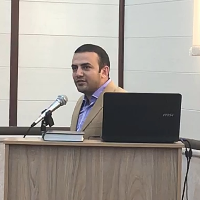Modeling obstacles to the realization of knowledge-based urban development
The research aims to identify and analyze the challenges of knowledge-based urban development in Ahvaz city, using a descriptive-analytical approach. The opinions of 20 experts were utilized to identify the factors and barriers hindering the realization of knowledge-based urban development in Ahvaz city. The ISM interpretive-structural modeling and Mic-Mac software were employed to examine the data on eighteen factors categorized into four dimensions (institutional-planning, economic, social-cultural, and physical) that serve as significant barriers to the implementation of knowledge-based urban development in Ahvaz. The findings revealed that the dominant and traditional political economy, along with rigid and unilateral approaches in policy-making, are the primary influential factors obstructing knowledge-based urban development. Additionally, citizens' reluctance to share knowledge and engage in communication, undervaluing knowledge acquisition and distribution, absence of a collaborative culture for knowledge management, citizen disconnection from current knowledge, underutilization of human capital, inadequate communication between universities and city management organizations for knowledge exchange, limited access to broadband and ICT services, digital divide, and unequal access to information and communication technology infrastructure, are among the key independent variables significantly impacting the city of Ahvaz
-
Towards a Paradigm Shift in The Guiding Culture of Spatial Governance System in Iran
*, Saeed Amanpour
Town And Country Planning, -
Explaining The Barriers to The Realization of Strategic Spatial Planning in Iran
*, Saeed Amanpour
Town And Country Planning,


